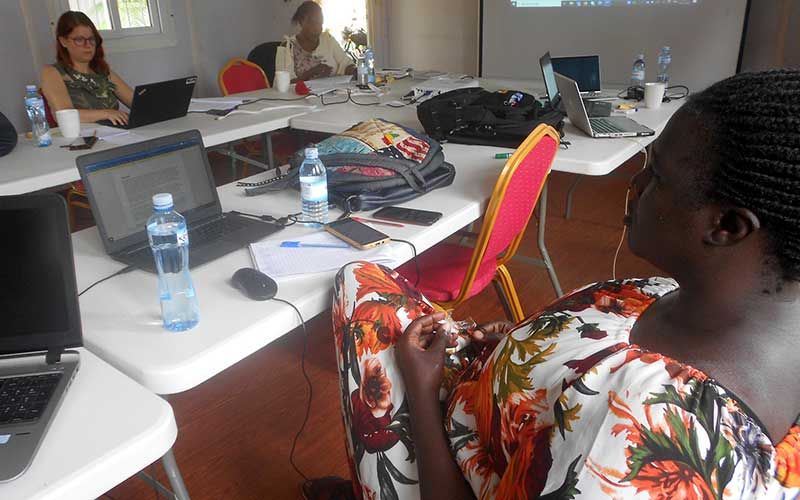
Gulu University researchers have found power in sitting and writing together. But some of their future projects will require consideration of the psychological effects some research areas can have on researchers.
On October 19, 2022, I attended a workshop of some researchers at the university, organized by one of the university’s projects; Building Stronger Universities (BSU), as they were writing a paper on reparations for war victims in Northern Uganda.
It was one of those experiences when you listen to people tell or retell very touching stories that have stuck in their minds for a long time and could probably stick there forever.
The Lord’s Resistance Army (LRA) war with the government of Uganda may have ended over a dozen years ago but the pain it caused will be very difficult to wipe away.
While the victims await compensatory measures, most especially from the government of Uganda and the International Criminal Court (ICC), listening to the researchers made me feel that there would probably never be adequate repair for the damage caused by that violent conflict which lasted two decades from 1986.
To avoid undermining their work I will use just a few carefully selected comments and general information on their research writing experience.
Dr. Ben Adol Otto, Dr. Agatha Alidri, Francis Atube, Stella Apecu Laloyo, Assoc. Prof. Charles Nelson Okumu, all from Gulu University, and Assoc. Prof. Line Engbo Gissel from Roskilde University in Denmark, on that day, sat in the BSU meeting room at Gulu University to jointly put together what they had gathered over time. In fact, they would spend the next couple of days brainstorming on other papers they are co-authoring under the theme “Communities and Reparations in Northern Uganda: An analysis of Local and International Perceptions.” They were joined online by Dr. Aloysius Malagala of the Institute of Peace and Strategic Studies (IPSS) at Gulu University.
Their draft paper was projected from Prof. Gissel’s computer for all to see as she fed into the machine the proposed changes. Every researcher brought out what they had gathered during data collection.
Under that theme, the researchers are studying what they refer to as a “strong desire in the general population [of northern Uganda] for reparations in the form of compensation to victims and apology for the harm done by the conflicting parties” as well as the nature of “reparations from different institutional and non-institutional perspectives.”
The war victims expect measures that include ‘paying for the dead’ through a traditional practice known as Culu Kwor, an issue the researchers say is contentious because it means owning up to the crimes which neither side of the conflict, seems ready to do. They also expect measures to improve their livelihoods as individuals, as well as an apology and truth-telling, which also means owning up to the crimes.
The researchers have listened to several stories about the killing, abduction, and massive displacement of people, especially in the Acholi sub-region. By 2006, when the guns fell silent, nearly two million people had been displaced by the conflict. Those who had been abducted or killed were estimated to be in the tens of thousands.
The researchers got deeply engaged in a conversation that involved recollecting moments, scenes, and statements from victims who were lucky to survive attacks, for example, the infamous 1995 Atiak massacre during which over 300 people were killed by the LRA rebels.
They had listened to narrations of how some people were forced to kill their own people, including their own children, by the rebels. In one of those stories, it is revealed how a woman was forced to kill her child as well as her nephew while the rebels and the rest watched. The method of killing was really terrible (I prefer not to state it here). And certainly, that woman will be traumatized for life.
Their narrations reminded me of some experience in 2010 when I spent a month in northern Uganda filming about the war and children of northern Uganda, and the power of radio during that conflict.
I was working for a company called Hotspot Films and we were making two documentaries for Al Jazeera TV. One of the crew members, a young Lebanese woman, only worked for a couple of days and abandoned the filming excise after she was overwhelmed by the palpable trauma from the narratives of the survivors. The traumatizing environment, as we recorded people’s accounts – from abductees who had escaped to rebel commanders who had since surrendered and were being looked after by the government – was too much for her.
The young woman would stay inside her hotel, Acholi Inn, for the rest of her stay in Gulu. By the time she left Uganda after that one month, there was just a thin layer of flesh covering her bones. Her skin had turned from brown to almost yellow. She could hardly eat food due to the trauma she had suffered. Her beauty had faded in so short a time. When she returned to Dubai she immediately resigned from her job as a field producer and went to look for work outside the film industry.
As the researchers retold their stories for the paper, they revealed that they were traumatized in the process of collecting the information.
“We got both data and trauma. The story of Amony [not her real name] took away our appetite. There were two women in our focus group who said they were forced to kill their children,” said Stella Laloya, the Acting Director of IPSS. Amony is the woman who had narrated to them how she was forced by the rebels to kill two children – one, her own, and the other, her brother’s.
Another researcher, Dr. Alidri, the Coordinator of BSU, added: “We were traumatized. [Francis] Atube was the most affected. It was his first encounter with this kind of qualitative research. His background is agriculture. He did not want us to discuss some of those things.”
Atube admitted during a brief interview with me that he was highly traumatized.
“The stories touched me. I became so emotional. I got so scared. When someone tells you she killed her child, and then she goes ahead to describe how she did it, that becomes too much. [Ben] Adol would probe further and I would tell him ‘stop, stop, stop there’,” Atube said.
“There is a need to prepare the mind of the researcher, and in some circumstances, one may need mental health services after such encounters. There are jobs whereby after doing it they give you some time off.”
Prof. Gissel was leading the sessions, typing into an already existing draft, and taking moments to ask some questions about different submissions.
“Is it true that the LRA commanders Vincent Otti and Otti Lagony were personally there during the attack of Atiak?” She asked at one moment. The rest of the researchers in the room said “Yes”. According to the researchers, the people in the focused group discussion at Atiak in September 2021, which Gissel did not participate in, said they saw them. Apparently, Vincent Otti, who was born in that area, screened the captives, separated his relatives, pregnant women and children, and ordered the killing of the rest.
Through three academic papers, the researchers will among others, present an assessment of the victims’ expectations when it comes to reparations as well as reveal gaps in the national and international reparation arrangements or plans. At the moment they outline three forms of healing that the people in northern Uganda expect: Physical healing, psychological healing, and social healing. The researchers will first present their unpublished papers during the BSU Conference 2022 to be held in November at Gulu University.
There are two key issues that I learned from their joint writing workshop. One is that physical meetings are very productive for co-writing. All the researchers in the room admitted that by coming together in the same room to co-write a paper, they are much more effective than working remotely. Two, that there should be plans for psychological attention for researchers as they set out to handle emotionally sensitive research areas. Sometimes one can be overwhelmed, mentally.
The writer is a Science Journalist

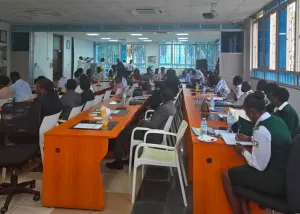
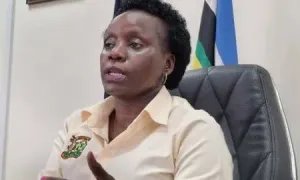
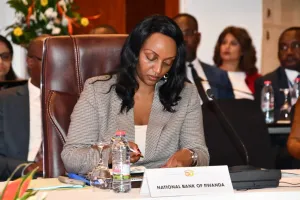
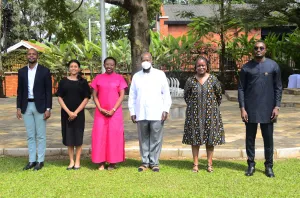
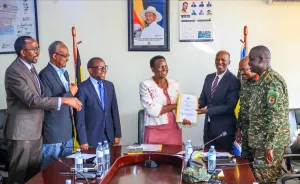





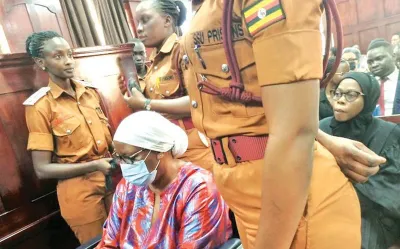
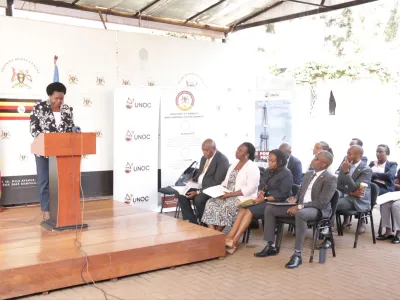
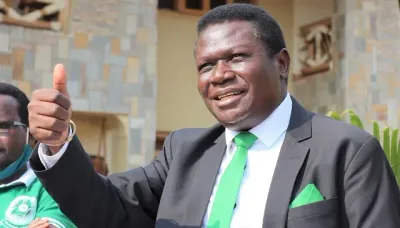
William Balikuddembe
William Odinga Balikuddembe, a Science journalist/Head of Research at the National Unity Platform (NUP)
Leave a Comment
Your email address will not be published.